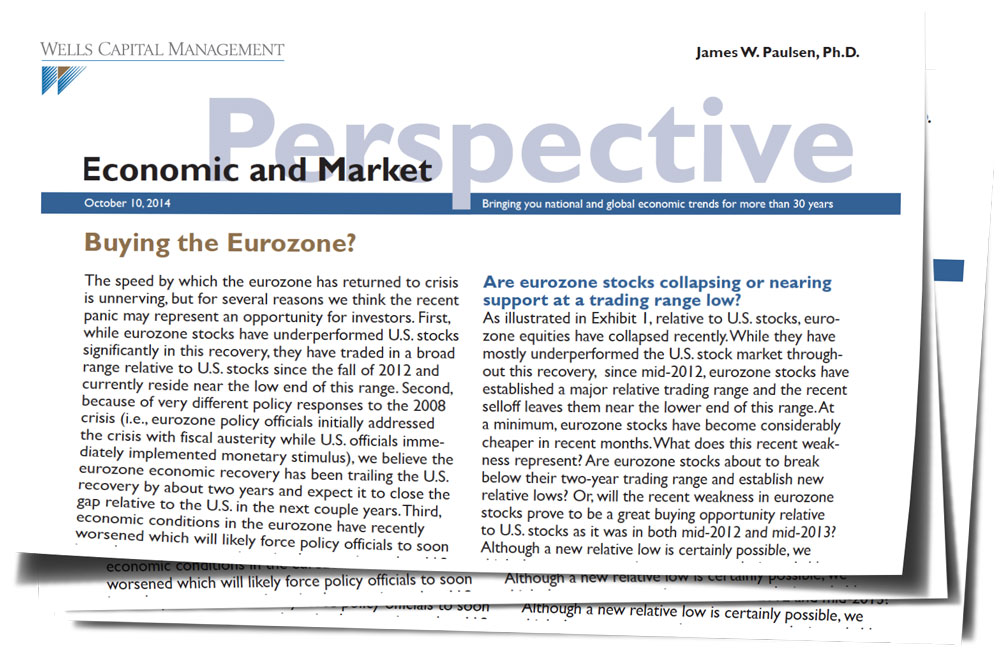Buying the Eurozone?
by James Paulsen, Chief Investment Strategist, Wells Capital Management
The speed by which the eurozone has returned to crisis is unnerving, but for several reasons we think the recent panic may represent an opportunity for investors. First, while eurozone stocks have underperformed U.S. stocks significantly in this recovery, they have traded in a broad range relative to U.S. stocks since the fall of 2012 and currently reside near the low end of this range. Second, because of very different policy responses to the 2008 crisis (i.e., eurozone policy officials initially addressed the crisis with fiscal austerity while U.S. officials immediately implemented monetary stimulus), we believe the eurozone economic recovery has been trailing the U.S. recovery by about two years and expect it to close the gap relative to the U.S. in the next couple years. Third, economic conditions in the eurozone have recently worsened which will likely force policy officials to soon introduce more aggressive stimulus at a time when U.S. policies are turning more restrictive. Finally, the U.S. dollar has recently strengthened substantially relative to the euro. The euro-dollar exchange rate is now near the lower end of a range which has been in force for almost a decade. Consequently, U.S. investors can buy eurozone stocks today with a reasonable expectation returns could be boosted should the euro revive some in the next year.
Since the 2008 crisis, the best buying opportunities have occurred where fear dominates the pricing of assets (e.g., buying stocks in March 2009 against widespread fears of a run on the U.S. banking industry, buying the astronomical government yields available in Europe as most feared the eurozone was imminently coming apart, and betting against the U.S. going over the fiscal cliff). Therefore, despite a consensus of investors currently avoiding equities in the region, should investors consider overweighting the eurozone?
Are eurozone stocks collapsing or nearing support at a trading range low?
As illustrated in Exhibit 1, relative to U.S. stocks, eurozone equities have collapsed recently. While they have mostly underperformed the U.S. stock market throughout this recovery, since mid-2012, eurozone stocks have established a major relative trading range and the recent selloff leaves them near the lower end of this range. At a minimum, eurozone stocks have become considerably cheaper in recent months. What does this recent weakness represent? Are eurozone stocks about to break below their two-year trading range and establish new relative lows? Or, will the recent weakness in eurozone stocks prove to be a great buying opportunity relative to U.S. stocks as it was in both mid-2012 and mid-2013? Although a new relative low is certainly possible, we think the recent swoon in eurozone stocks is probably an opportunity to buy cheapened stocks in a panic which is likely to prove temporary.














